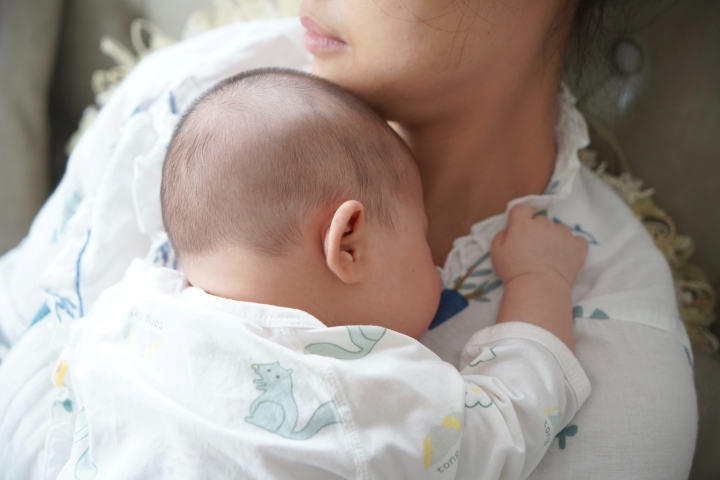Substance abuse during the postpartum period can harm the mother and the child, particularly regarding their attachment bond. As addiction takes hold, parents may become less responsive to their child’s needs, leading to a breakdown in the critical bond between a mother and child. That can lead to a range of negative outcomes for both parties, including emotional and behavioral problems for the child and a higher likelihood of relapse for the parent.
Therefore, it is essential for parents struggling with substance abuse to seek treatment, especially during pregnancy. While rehab can be challenging, a healthy recovery and creating a positive environment for parent-child attachment are crucial. In this article, we will explore the impact of postpartum substance abuse on parent-child attachment and provide strategies for building secure attachment during recovery. Following these tips, parents can develop and maintain strong, healthy bonds with their children, even after overcoming addiction.
The Impact of Postpartum Substance Abuse on Parent-Child Attachment
Attachment theory suggests that a caregiver’s bond is critical to the child’s emotional and psychological development. When a parent abuses substances, they may struggle to respond appropriately to their child’s needs, disrupting the attachment bond. As experts in addiction recovery at Harmony Ridge Recovery state, children of parents with substance abuse disorders may experience neglect, abuse, or trauma, leading to negative outcomes such as anxiety, depression, and behavioral problems. On the other hand, a secure attachment bond between a parent and child can provide the foundation for healthy social, emotional, and cognitive development. Children with secure attachments are likelier to exhibit positive behaviors, form healthy relationships, and perform academically.
Seeking Help During Pregnancy
Pregnancy can be an excellent time to seek treatment for substance abuse disorders. The motivation to protect and care for the unborn child can be a powerful force in encouraging the parent to seek help. Additionally, treatment during pregnancy can provide added support and resources for the parent, helping them to begin the recovery process before the child is born.
Several types of treatment programs are available for parents struggling with substance abuse during pregnancy. Medication-assisted therapy (MAT) is a common approach that combines medication with therapy and counseling to support recovery. Behavioral interventions, such as contingency management and cognitive-behavioral therapy, can also help treat substance abuse disorders during pregnancy. It is essential to choose a program that addresses the parent’s specific needs and provides resources for building and maintaining attachment with their child.
Furthermore, if you begin the treatment on time, you can improve the chances of a successful recovery and a healthy attachment bond with the child. Treatment during pregnancy can also help to ensure the safety of both the parent and child. Substance abuse can have serious consequences for fetal development, including low birth weight, premature birth, and developmental delays. Treatment can reduce these risks and improve the chances of a healthy pregnancy and delivery.
Choosing the right treatment program and seeking help early in pregnancy is crucial to ensure the best possible outcomes. Parents who struggle with substance abuse during pregnancy should not hesitate to seek help and support. Parents can overcome addiction and build healthy, strong bonds with their children with the right treatment and resources.
How to Improve Parent-Child Attachment During Recovery
After beginning the recovery process, new mothers must know strategies for building secure attachments with their children. Early intervention is crucial as infants develop attachment bonds with their caregivers from birth. New mothers can use techniques to create and maintain a healthy attachment bond with their children, including skin-to-skin contact, positive interaction, responsive parenting, and consistency and predictability.
Skin-to-skin contact can be especially helpful in building attachment, as it can promote feelings of warmth and closeness between mother and child. The positive interaction as smiling, talking, and playing with the child, can also help build a secure attachment bond. Responsive parenting, which involves tuning in to the child’s needs and responding promptly and appropriately, can also help build trust and connection between mother and child. Consistency and predictability in the child’s routine and environment can also help promote a secure attachment bond.
Overall, new mothers recovering from substance abuse should be aware of the importance of parent-child attachment and the strategies for building and maintaining a healthy bond with their child.
Maintaining Sobriety and Attachment After Rehab
It’s important to note that parenting in recovery has its challenges. It can be challenging for new mothers to balance the demands of parenting with the needs of recovery. However, with the right mindset and support, overcoming these challenges and building a healthy, loving relationship with your child is possible.
One of the most critical things new mothers need to know is that recovery is a lifelong journey. Even after leaving rehab, it’s important to continue seeking support and resources to maintain sobriety and build a healthy attachment bond with your child. That may include attending support groups, seeking therapy or counseling, or finding a mentor or sponsor to provide guidance and support.
It’s also essential for new mothers to take care of themselves as they navigate recovery and parenting. That may mean carving out time for self-care, such as exercise, relaxation, or hobbies, and practicing healthy coping mechanisms to manage stress and emotions. By caring for themselves, new mothers can be better equipped to care for their children and build a healthy attachment bond.
Final Words
The impact of postpartum substance abuse on parent-child attachment can be significant. Still, overcoming these challenges and building a healthy, loving relationship with your child is possible. By seeking help early, choosing the right treatment program, and following strategies for building attachment, new mothers can create a positive environment for their child’s growth and development. With ongoing support and resources, new mothers can maintain sobriety and build a bright future for themselves and their children.
